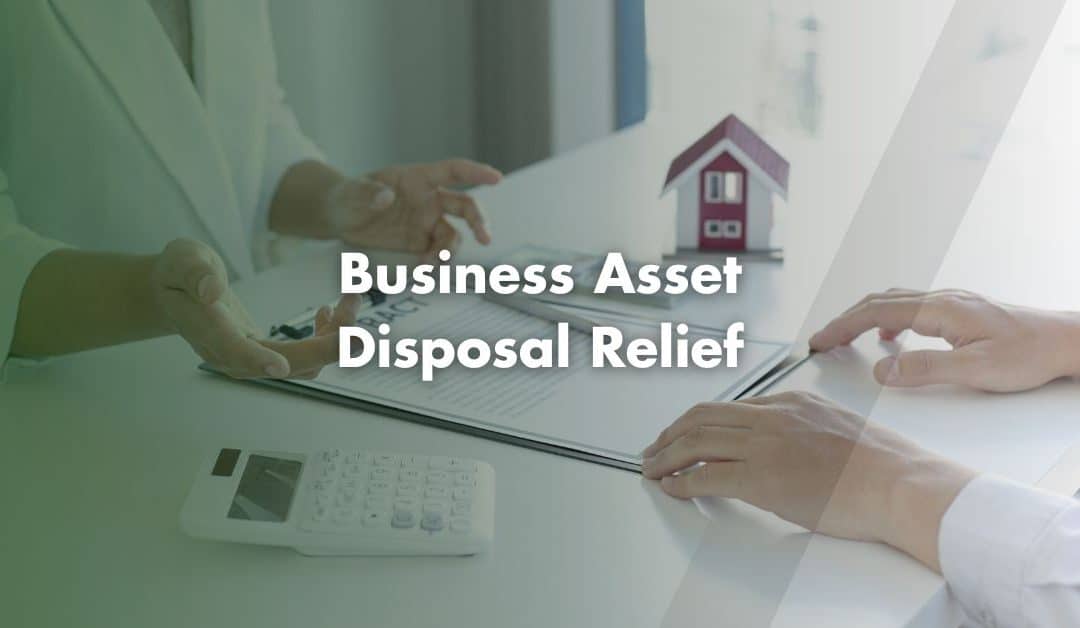When you sell or close your business, the profits you make may be subject to Capital Gains Tax (CGT). This tax can significantly reduce your final earnings. Business Asset Disposal Relief (BADR) helps lower that burden by allowing eligible business owners to pay a reduced tax rate on gains made when selling business assets.
Previously known as Entrepreneurs’ Relief, Business Asset Disposal Relief offers generous support for business owners who have invested years of effort into building their companies.
What is Business Asset Disposal Relief?
Business Asset Disposal Relief reduces the rate of Capital Gains Tax when you sell or dispose of qualifying business assets. Ordinarily, CGT is chargeable at the standard rate of up to 24% from 30th October 2024. With BADR, this rate drops to 10% on qualifying gains made before 6th April 2025.
The rate will rise to 14% from 6th April 2025 and then to 18% from April 2026. Timing your sale carefully could make a noticeable difference to your overall savings.
The relief applies to a lifetime limit of £1 million in total gains. Once you reach that threshold, future gains are taxable at the normal CGT rate. The limit applies per person rather than per business, so you can claim BADR multiple times until you reach your £1 million allowance.
Which Assets Qualify?
To claim Business Asset Disposal Relief, you must genuinely use the asset in your business. Common qualifying assets include:
- Business property used for trading, such as offices or warehouses.
- Shares in a company where you own at least 5% of the shares and voting rights.
- Goodwill, representing the reputation and customer base of your business.
- Machinery or equipment that you use in your day-to-day operations.
- Intellectual property, such as patents and trademarks.
These assets must be part of your trading activity. You cannot claim BADR on assets held purely for investment, such as rental properties or shares in non-trading companies.
Who Can Claim Business Asset Disposal Relief?
Business Asset Disposal Relief is only available to individuals, not businesses. You can claim BADR if you meet one of the following conditions:
- You are a sole trader or business partner who has owned the business for at least two years.
- You are a director, shareholder or employee with at least 5% ownership and voting rights for a minimum of two years.
- You are a trustee where the trust’s beneficiary meets the qualifying conditions.
If your company stops trading, you can still claim BADR by selling your shares within three years of the business closing. This rule gives business owners flexibility when winding down operations.
How Does It Work?
Business Asset Disposal Relief works by lowering the rate of Capital Gains Tax applicable to your profits.
For example: You sell your business for £500,000, which originally cost you £200,000. Your gain is £300,000. Without BADR, you would pay 24% CGT, which would be £72,000. With BADR, you just pay just 10% or £30,000. This is saves you £42,000.
This relief can make a huge difference for business owners saving for retirement or reinvestment.
How to Claim Business Asset Disposal Relief
Claiming Business Asset Disposal Relief is not automatic. You need to apply through your Self Assessment tax return. Follow these steps to make your claim:
- Complete the Capital Gains summary section of your Self Assessment tax return.
- Tick the BADR claim box or fill in Section A of HMRC’s BADR helpsheet (HS275).
- Submit your claim by the 31st January deadline, one year after the end of the tax year when the disposal took place.
For example: If you sold your business in May 2024, you have until 31st January 2026 to claim BADR.
Eligibility Rules
To qualify for Business Asset Disposal Relief, you must meet these conditions:
- You owned the business or shares for at least two years before selling.
- The business was actively trading during that perod.
- You sold all or part of the business, or disposed of qualifying shares.
- If the business closed, you sold the assets within three years of closure.
For shareholders, the company must be your personal company, mean you own at least 5% of the shares, voting rights and entitlement to profits or sale proceeds.
If you hold shares under an Enterprise Management Incentive (EMI) scheme, you must have received your share options after 5th April 2013 and held them for at least two years before the sale. EMI shares can still qualify even if you do not own 5% of the company.
When a Company Stops Trading
If a company ceases trading, you can still claim Business Asset Disposal Relief as long as you sell your shares within three years. This rule ensures that those who retire or close their business for other reasons are not at a disadvantage.
You can also claim BADR on assets loaned to the business if you personally owned the asset, allowed your business to use it for at least one year before the sale, and sold your shares or partnership interest at the same time.
Contact Us
We are not just accountants; we are Chartered Accountants with one of the most reputable and premium accounting bodies. We are registered and regulated by ACCA; so you can rest assured that you are in good hands. Knowing this, don’t hesitate to get in touch with us if you require assistance: Pi Accountancy | Contact Us
This article is for general informational purposes only and does not constitute legal or financial advice. While we aim to keep our content up to date and accurate, UK tax laws and regulations are subject to change. Please speak to an accountant or tax professional for advice tailored to your individual circumstances. Pi Accountancy accepts no responsibility for any issues arising from reliance on the information provided.

